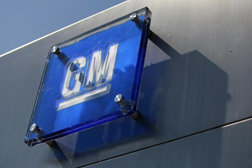Old GM Tells New GM To Compensate Customers For Faulty Switches
 General Motors Co. customers won a key ally in their quest for $10 billion in compensation: the automaker's bankrupt predecessor, which said switch defects were illegally hidden from consumers during the company's 2009 bailout. A trust that pays the bankrupt company's creditors urged a judge to set aside earlier rulings that told the now-profitable GM it needn't pay customers for price drops of older, recalled vehicles. Drivers who were denied their rights in his court five years ago are entitled to sue now, it said in a December 16, 2014 court filing.
General Motors Co. customers won a key ally in their quest for $10 billion in compensation: the automaker's bankrupt predecessor, which said switch defects were illegally hidden from consumers during the company's 2009 bailout. A trust that pays the bankrupt company's creditors urged a judge to set aside earlier rulings that told the now-profitable GM it needn't pay customers for price drops of older, recalled vehicles. Drivers who were denied their rights in his court five years ago are entitled to sue now, it said in a December 16, 2014 court filing.
The trust and its creditors counted more than 170 lawsuits mounted during 80 recalls of over 30 million cars, many with defective switches that GM "has been aware of, and concealed, for years." The company has no legal ground for asking the judge to shield it from customers, they said.
A 2009 sale order by U.S. Bankruptcy Judge Robert Gerber in Manhattan let GM exit bankruptcy using government money to buy its predecessor's best assets. The automaker has told customers to sue the bankrupt remnant for the lost value of cars with defective switches, but the trust has said it has little left to pay new claims. To aid the $49.5 billion bailout, Gerber ruled that revamped GM wasn't on the hook for cars manufactured by its predecessor.
This week, customers made their first formal request that he lift a ban on their $10 billion suit, now pending in another court. The money would be for penalties as well as to cover price declines of recalled cars. GM must be made to pay for its "callous cover-up" and the collapse of prices after belated recalls this year. By law, Gerber's 2009 orders don't bind anyone who wasn't told to put in a claim at the time.
In its request for a ban on the lawsuits, GM "sets forth the company's positions on these issues, which we continue to believe are correct," he said.
About 130 car-price suits against GM have been combined in two class actions in Manhattan federal court. The suits demand payment for price losses on around 30 million recalled cars, almost half of them made before the bankruptcy.
 General Motors Co. customers won a key ally in their quest for $10 billion in compensation: the automaker's bankrupt predecessor, which said switch defects were illegally hidden from consumers during the company's 2009 bailout. A trust that pays the bankrupt company's creditors urged a judge to set aside earlier rulings that told the now-profitable GM it needn't pay customers for price drops of older, recalled vehicles. Drivers who were denied their rights in his court five years ago are entitled to sue now, it said in a December 16, 2014 court filing.
General Motors Co. customers won a key ally in their quest for $10 billion in compensation: the automaker's bankrupt predecessor, which said switch defects were illegally hidden from consumers during the company's 2009 bailout. A trust that pays the bankrupt company's creditors urged a judge to set aside earlier rulings that told the now-profitable GM it needn't pay customers for price drops of older, recalled vehicles. Drivers who were denied their rights in his court five years ago are entitled to sue now, it said in a December 16, 2014 court filing.